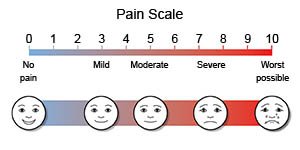Comfort Measures
Medically reviewed by Drugs.com. Last updated on Apr 6, 2025.
What are comfort measures?
Comfort measures are ways suffering can be eased during end-of-life care. Care can be provided at home or in a hospital. It can also be provided in a hospice or long-term care facility. Comfort measures are sometimes called palliative measures, but they are different. Palliative care can be given for any disease or illness, even if the person recovers. Comfort measures are only given when treatment will no longer be effective.
Who provides comfort measures?
Your comfort care team may include any of the following:
- Doctors, nurses, and dietitians
- Pain specialists and pharmacists
- Chaplains, social workers, and counselors
How will my symptoms be managed?
- Pain may be relieved with medicine. You may instead choose other methods, such as massage, music, or aromatherapy. Your team will ask how the pain is affecting your quality of life. You can describe where and how often you feel pain, and when it started. You can describe the pain as sharp, achy, or throbbing. You can also describe how bad it is. This may be on a pain scale from 0 to 10, or by choosing a face on a pain scale picture.

- Shortness of breath may be relieved with extra oxygen or breathing treatments. You can describe any problems with breathing. You may feel short of breath all the time, or only with activity. You may feel a little winded, or like you are struggling to breathe. Comfort care will depend on what is causing your shortness of breath.
- Physical symptoms can be relieved or treated to improve your comfort. Examples include nausea, fatigue, and sleep problems. Your skin can be treated or soothed if it is irritated or you develop a pressure injury from lying in bed. Some treatment may help relieve your symptoms even though it will not cure the disease. An example is radiation. Radiation will not cure the cancer, but it can make the tumor smaller. This may help relieve pain or other symptoms caused by the tumor.
- Emotional symptoms such as anxiety, sadness, or depression may affect your quality of life. These symptoms may be treated with medicines. Other methods include deep breathing and meditation. You may also want to talk to a counselor or spiritual advisor.
What support services may be offered?
- Care support is given to help you and your family. Your team can answer any questions you or family members have. You may have an advanced directive or other legal document that explains your wishes for care. Your care team will use this document if you are not able to tell them your wishes. You can also choose a person to make decisions for you. The person can be a family member or friend. If you are not able to make decisions, the person works with your team to provide the care you want.
- Emotional and psychological support is provided to help you and those close to you. Team members will meet with you and your family regularly about your condition. You and those close to you may also join support groups or meet others receiving comfort measures.
- Spiritual and cultural support helps your child and his or her family evaluate religious values and cultural beliefs. This may make it easier to understand and accept your child's condition.
Where can I find more information?
- National Hospice & Palliative Care Organization (NHPCO)
1731 King Street, Suite 100
Alexandria , VA 22314
Phone: 1- 800 - 658-8898
Web Address: https://www.nhpco.org/
- Caring Connections
National Hospice and Palliative Care Organization
1731 King Street, Suite 100
Alexandria , VA 22314
Phone: 1- 800 - 658-8898
Web Address: http://www.caringinfo.org
Care Agreement
You have the right to help plan your care. Learn about your health condition and how it may be treated. Discuss treatment options with your healthcare providers to decide what care you want to receive. You always have the right to refuse treatment. The above information is an educational aid only. It is not intended as medical advice for individual conditions or treatments. Talk to your doctor, nurse or pharmacist before following any medical regimen to see if it is safe and effective for you.© Copyright Merative 2025 Information is for End User's use only and may not be sold, redistributed or otherwise used for commercial purposes.
Further information
Always consult your healthcare provider to ensure the information displayed on this page applies to your personal circumstances.
